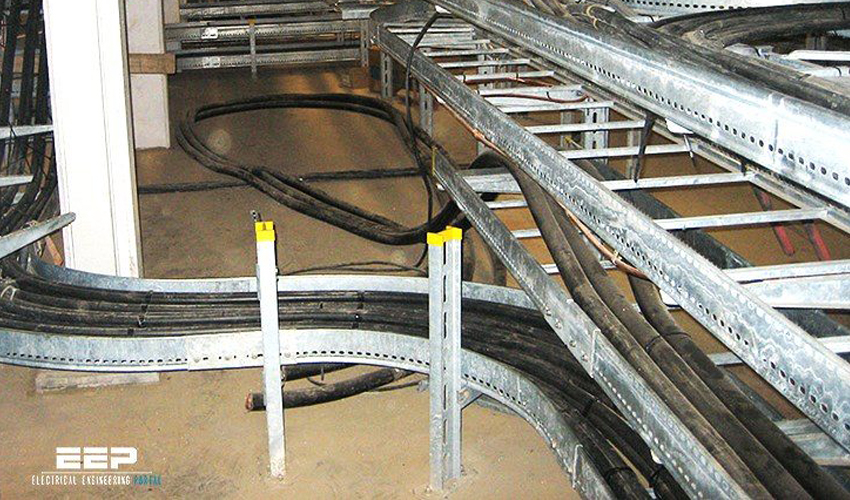Introduction
In an age heavily reliant on electricity, ensuring the safety, efficiency, and reliability of electrical systems is paramount. Electrical auditing services have emerged as a critical component in achieving these goals. Whether for residential, commercial, or industrial settings, electrical audits provide a comprehensive assessment of electrical installations and systems. This article delves into the importance of having an electrical auditing service and the benefits it offers in enhancing electrical safety and performance.
I. Understanding Electrical Auditing
Electrical auditing involves a systematic and thorough evaluation of electrical systems, components, and installations. It is conducted by qualified professionals who inspect, test, and assess the various elements of an electrical system. The primary objectives of electrical auditing are:
Safety Assessment: Identify potential electrical hazards and safety violations that could lead to accidents or fires.
Energy Efficiency: Evaluate the energy consumption patterns of electrical systems and recommend measures to enhance efficiency and reduce operational costs.
Reliability and Performance: Assess the overall performance and reliability of electrical equipment, such as circuit breakers, transformers, and distribution panels.
Compliance: Ensure that the electrical systems and installations comply with relevant codes, standards, and regulations.
II. Electrical Safety
Electrical safety is a fundamental concern, and electrical auditing plays a pivotal role in mitigating risks associated with electrical systems:
Identifying Hazards: Electrical audits pinpoint potential hazards such as overloaded circuits, faulty wiring, or inadequate grounding. Addressing these issues promptly can prevent electrical accidents, electrical shock, and fires.
Arc Flash Analysis: In industrial settings, electrical audits often include arc flash hazard analysis, which calculates the potential arc flash incident energy at various points in the system. This information is crucial for establishing appropriate personal protective equipment (PPE) requirements to protect workers.
Fire Prevention: Many electrical fires result from faulty wiring or outdated equipment. Electrical audits can identify these fire risks and recommend corrective actions, potentially saving lives and property.
III. Energy Efficiency
Energy efficiency is a growing concern, both from an environmental and cost-saving perspective. Electrical audits contribute to energy conservation by:
Energy Consumption Assessment: Auditors analyze energy consumption patterns, identifying areas of inefficiency. This includes assessing the energy efficiency of lighting, HVAC systems, motors, and other electrical components.
Recommendations for Improvement: Based on the audit findings, recommendations are provided to enhance energy efficiency. This may include upgrading to energy-efficient lighting, optimizing motor systems, or implementing energy management systems.
Cost Savings: Implementing energy-efficient measures as a result of an electrical audit can lead to significant cost savings over time, reducing utility bills and the carbon footprint.
IV. Reliability and Performance
The reliability and performance of electrical systems are crucial for seamless operations in commercial and industrial facilities:
Preventive Maintenance: Electrical audits help identify components that are nearing the end of their operational life or showing signs of wear and tear. This allows for proactive maintenance and replacement, reducing the risk of unexpected downtime.
Load Balancing: In industrial settings, electrical audits can assess load balancing to ensure that electrical systems are distributing power evenly. Proper load balancing can extend the life of equipment and prevent overheating.
Voltage Stability: Auditors assess voltage stability and fluctuations, which can affect the performance of sensitive equipment. Addressing voltage issues can improve equipment longevity and reliability.
V. Compliance with Codes and Regulations
Adherence to electrical codes and regulations is not only essential for safety but also to avoid legal liabilities and penalties:
Code Compliance: Electrical audits confirm that electrical systems and installations comply with national and local electrical codes and standards, ensuring they meet safety and performance requirements.
Documentation: Auditors often provide detailed reports and documentation of the audit findings. This documentation serves as proof of compliance in case of regulatory inspections or insurance claims.
VI. Diagnostic and Predictive Benefits
Beyond addressing immediate concerns, electrical audits provide diagnostic and predictive benefits:
Early Problem Detection: Audits can detect issues that may not yet be causing problems but could lead to failures in the future. Addressing these issues proactively can prevent costly breakdowns.
Data for Future Planning: Audit reports serve as valuable reference documents for future electrical system planning and upgrades. They provide insights into the condition of the system and help in making informed decisions.
VII. Cost Savings and Return on Investment (ROI)
Investing in electrical audits can yield substantial cost savings and a positive ROI over time:
Reduced Maintenance Costs: Proactive maintenance and addressing issues identified in audits can reduce the need for emergency repairs, which tend to be more expensive.
Energy Savings: Implementing energy efficiency recommendations can result in ongoing cost savings on utility bills.
Downtime Reduction: By identifying and mitigating potential failures, electrical audits can significantly reduce unplanned downtime, saving both time and money.
Conclusion
Electrical auditing services are essential for ensuring the safety, efficiency, and reliability of electrical systems in residential, commercial, and industrial settings. From identifying safety hazards and improving energy efficiency to ensuring compliance with codes and regulations, electrical audits provide a holistic assessment of electrical installations. The benefits of electrical auditing extend beyond immediate problem-solving, offering long-term cost savings, enhanced reliability, and a proactive approach to maintenance and system improvement. To safeguard lives, property, and operational continuity, consider investing in regular electrical audits to keep your electrical systems in optimal condition.


Ruffer
There are many different types of roofing materials to choose from, including asphalt shingles, Metal roofing, wood shakes, clay tiles, and slate. Each material has its
Ruffer
Roofing materials to choose from, including asphalt shingles, Metal roofing, wood shakes, clay tiles, and slate. Each material has its
Ruffer
There are many different types of roofing materials to choose from, including asphalt shingles, Metal roofing, wood shakes, clay tiles, and slate. Each material has